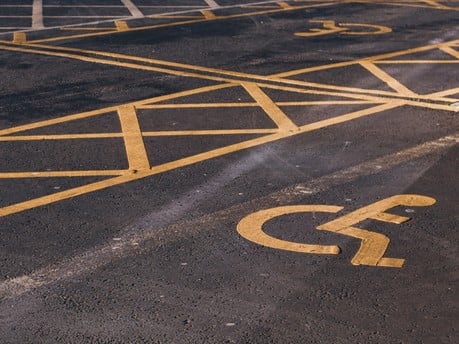Your Guide To Driving With A Disability
Get behind the wheel with confidence thanks to our complete guide for disabled drivers
Whilst there are so many ways in which driving can be made accessible to you if you’re living with a disability, it’s important to know what rules and regulations are in place to keep you and those around you safe and legal. Here we look at the main things to be aware of when driving with a disability.
Can I drive with a disability?
There isn’t a one-size-fits-all answer to this, as it will very much depend on your circumstances.
Your first port of call should be the DVLA (Driver and Vehicle Licensing Agency), who need to be aware of your medical conditions by law if you intend on hitting the roads. This is the case if you’re a new driver with an existing condition applying for your driving licence, or you already have a licence and develop a medical condition.
It will ultimately be down to the DVLA to decide if you’re legally able to drive in light of the information you have provided to them. Failure to inform them at any stage could result in a fine of up to £1,000.
If you’ve not yet learned to drive and you’re unsure whether your disability will be an issue, you can ask for guidance from a ‘driving mobility’ assessment centre, who will be able to advise you on any vehicle modifications you may need to learn to drive. It may be that you need to seek out an instructor with a modified vehicle, or buy your own in which to be professionally taught.
It’s worth knowing that if you were in receipt of the higher rate mobility component of Disability Living Allowance (DLA), or the enhanced rate mobility component of Personal Independence Payments (PIP), you are able to hold a licence from the age of 16.
Can I take a driving test with a disability?
If it has been confirmed that you’re legally able to learn to drive, and you have taken lessons in a car that has been appropriately modified for you if necessary, you can take a driving test. Take into account any modifications you may need to the test itself, such as extra time, and make the examiner aware of restrictions so they can make a note of the restriction codes on your licence.
Can I carry on driving if I become disabled?
Even if you’re unsure whether a new condition will affect your ability to drive practically or legally, you must still notify the DVLA, who can then advise you on whether you can continue to drive. It’s not all or nothing though; they may decide that, even if you do have a notifiable condition, you can still keep a new or shortened licence, or if you need to give it up for a set period of time.
If I have a mental illness or learning disability, can I still drive?
For conditions such as anxiety, depression and OCD, you should seek the advice of your GP, who should be able to advise you whether or not you need to inform the DVLA.
However, mental health conditions such as psychosis and schizophrenia should always be declared to the DVLA, so that they can decide what your driving future looks like, as these conditions could impact the way you drive.
The same applies to learning difficulties - you must make the DVLA aware or risk a £1,000 fine.
Can I get a blue badge if I’m disabled?
If your mobility is impacted by your medical condition, being able to park closer to your destinations could make all the difference. You may, therefore, find that you’re eligible for a Blue Badge Permit, which enables you to park in designated areas in car parks that are closer to the building. If you obtain your Blue Badge, you must display it clearly in your vehicle when parking in Blue Badge bays.
Can I buy a modified car if I’m disabled?
Here at EMG, we’re firm believers that limited mobility shouldn’t prevent you from enjoying the unrivalled freedom that driving can provide - it’s why we offer our cars on the Motability scheme. The Motability Scheme allows the exchange of mobility allowance for the lease of a car that suits your needs and any restriction codes on your licence. For example, steering paddles might be fitted in place of a gear stick. It’s facilitated independence for drivers across the UK!
We’d love to chat with you about what we can do to enhance your driving experience if you’re living with a disability, so get in touch with your local EMG dealership to find out how we can help.

